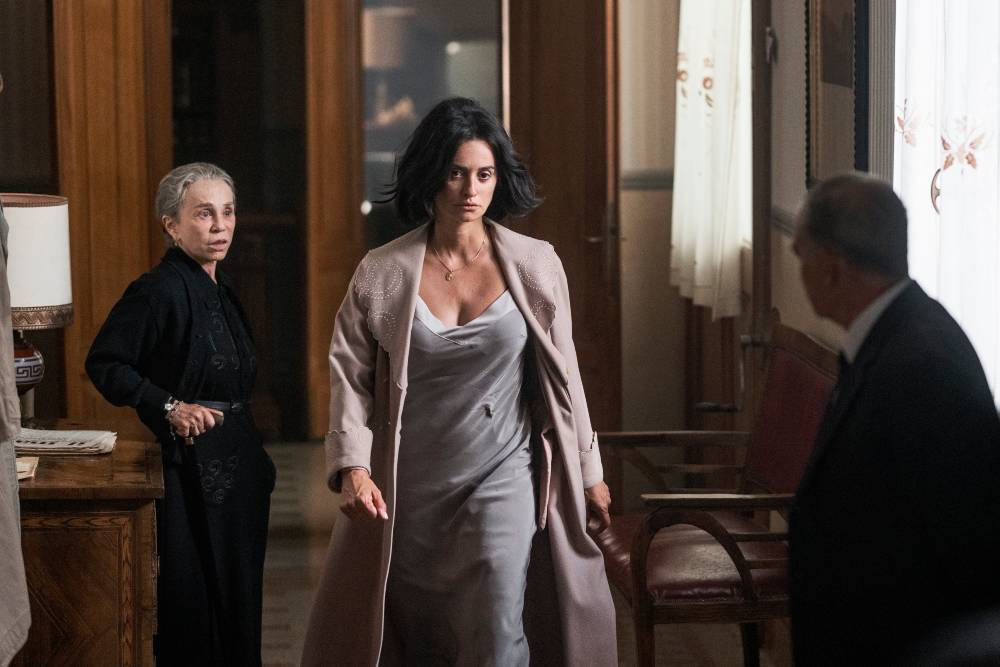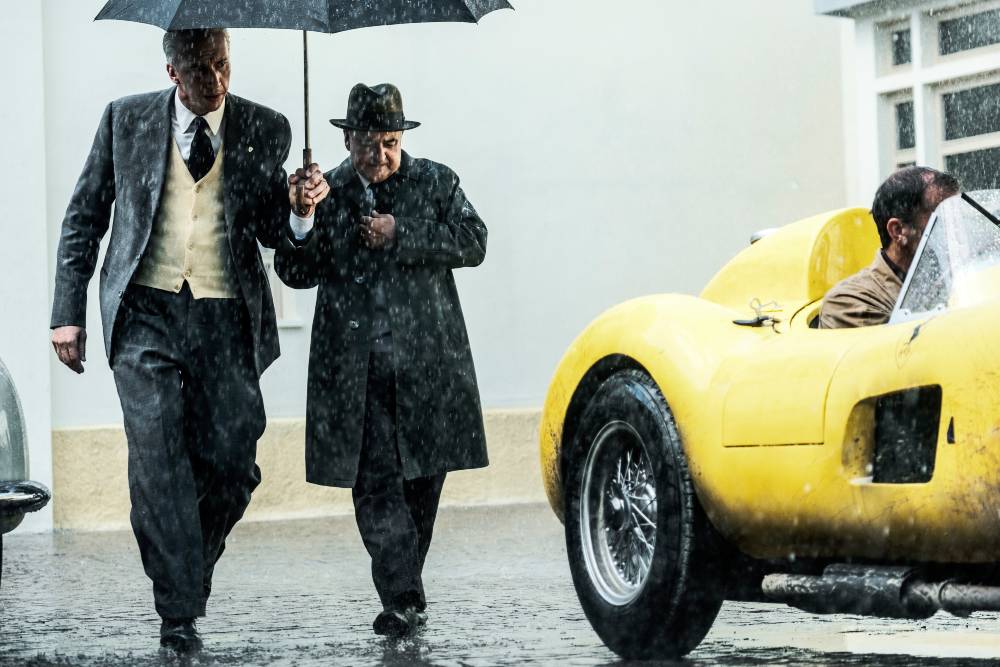Read also:
How to Watch FX Live Without CableHow To Watch AMC Without CableHow to Watch ABC Without CableHow to Watch Paramount Network Without CableAdam Driver does insightful, searching work as auto legend Enzo Ferrari in the filmmaker’s study of a pivotal year in his life.
Michael Mann’s 21st-century work is, first and foremost, a cinema of feeling. When it comes to the details, he remains as much of a nerd as he was when he choreographed the thrilling terror of Heat’s climactic blowout. But Collateral, Miami Vice, and Blackhat pay special mind to the senses, to connection. It’s Colin Farrell and Gong Li finding a rare moment of joy as they dance to live music in Havana. It’s Jamie Foxx, Jada Pinkett Smith, and Tom Cruise taking in the stillness of daybreak on an L.A. train. It’s Chris Hemsworth and Tang Wei clinging to each other on a near-empty subway as they try and fail to block out grief for survival’s sake. In Ferrari, it’s Adam Driver and Penélope Cruz sitting across from each other, laying out what they need from each other in their business partnership and estranged marriage.
But while Ferrari is unmistakably in conversation with Mann and his creative collaborators’ earlier work, it’s more emotionally reserved than much of his 21st-century filmography. While his John Dillinger picture Public Enemies is certainly a cousin (a period piece built on a specific period in the life of an iconic man), it’s as much about the time and place and the ensemble. Ferrari is, first and foremost, a character study.
Adam Driver is Enzo Ferrari in 1957. As a car designer, Ferrari is unmatched. As a boss (to both his race team and his factory staff), he is cool and demanding but not unmovable. As a businessman, he is starting to flail—Ferrari-the-company needs to scale up consumer production, which means that Ferrari-the-racing-team needs a win.

As a husband, Enzo has failed his wife, Laura Ferrari (Cruz). As a romantic partner, he struggles to be what his mistress Lina Lardi (Shailene Woodley) needs him to be. As a father, he’s loving; he and Laura visit the grave of their dead-far-too-young son every day, albeit separately; he’s downright gentle with surviving son Piero [Giuseppe Festinese]. But he undercuts himself with the very tools he uses to protect his psyche.
When he was younger and reeling from the loss of his brother and two of his closest friends (the friends on the same day), Ferrari told himself, “Enzo, build a wall,” lest his grief rip him to shreds. And so, he did. It’s protected him from hurt, and it’s locked him up in himself. When his racers perish in (brutal) accidents (auto racing is always dangerous, but in the 1950s, death was darn near a chartered member of the Ferrari racing team), he ensures that their loved ones are looked after. But he also makes sure their replacements are ready to go as soon as possible. Laura makes it clear (at gunpoint and otherwise) that Enzo’s philandering and iciness have hurt her badly; he acknowledges the hurt and meets her terms for negotiations as business partners. As much as Enzo adores Piero, he dithers when the boy’s confirmation is imminent, for fear of the business consequences of a Ferrari born out of wedlock.
Driver does very, very fine work as Ferrari. He is not playing a Great Man to be lionized nor a hateful ghoul to be demonized. No, he, Mann, and screenwriter Troy Kennedy Martin find Ferrari’s passion and (sorry) drive compelling. In certain circumstances, it’s even impressive: His cunning shuffle to earn the sympathy of a potential Italian business partner, or knowing exactly how to motivate his drivers to give their all during a pivotal race. And they never take their eyes off the ways that Ferrari hurts the people he cares for and struggles to see over the very wall he insists upon.

There is no grand moment of catharsis. Ferrari’s heart does not grow three sizes and shatter the frame he’d put it in. The wall remains standing. But there are cracks, most of them formed through acceptance—accepting that the care he and Laura still hold for each other has mutated from that of two people in love to two people who once loved each other, accepting that Piero and Lina cannot stay hidden away in the countryside forever, accepting that Ferrari must adapt with the times as both an automotive manufacturer and a race team if it is to survive. It’s subtle, commanding work on Driver’s part, matched especially well by Cruz’s turn as Laura. Their chemistry is fraught, thorny, and above all else, exciting. It’s one thing to be semi-estranged from each other romantically while remaining business partners. It’s quite another when care and a spark remain between them.
And Ferrari’s beloved cars? Aside from the inherent treat of Mann showcasing gorgeous 1957-era Ferraris (goodness, they’re design triumphs), oh the things he and his collaborators do with the sound of an engine. The roar as a skilled driver pilots his way through the twists and turns of a live road race, or the sudden cut-off when something goes horribly wrong. There are two crash scenes in Ferrari, one of which drops the sound in a matter not dissimilar to the climax of Blackhat’s second act for a sequence that may well be the most disturbing thing Mann and company have ever put to film. It does not linger gratuitously, but it is mercilessly matter of fact.
Driver’s turn as Enzo Ferrari is strong, Penélope Cruz’s Laura Ferrari matches him beat for beat and turn for turn, and Mann and company’s technical craft is elegant and striking. It’s a well-made, dimensional portrait of a fascinating person and the machines he dedicated his life to. In other words? A darn fine film, one well worth taking for a ride.
Ferrari is currently in theaters.